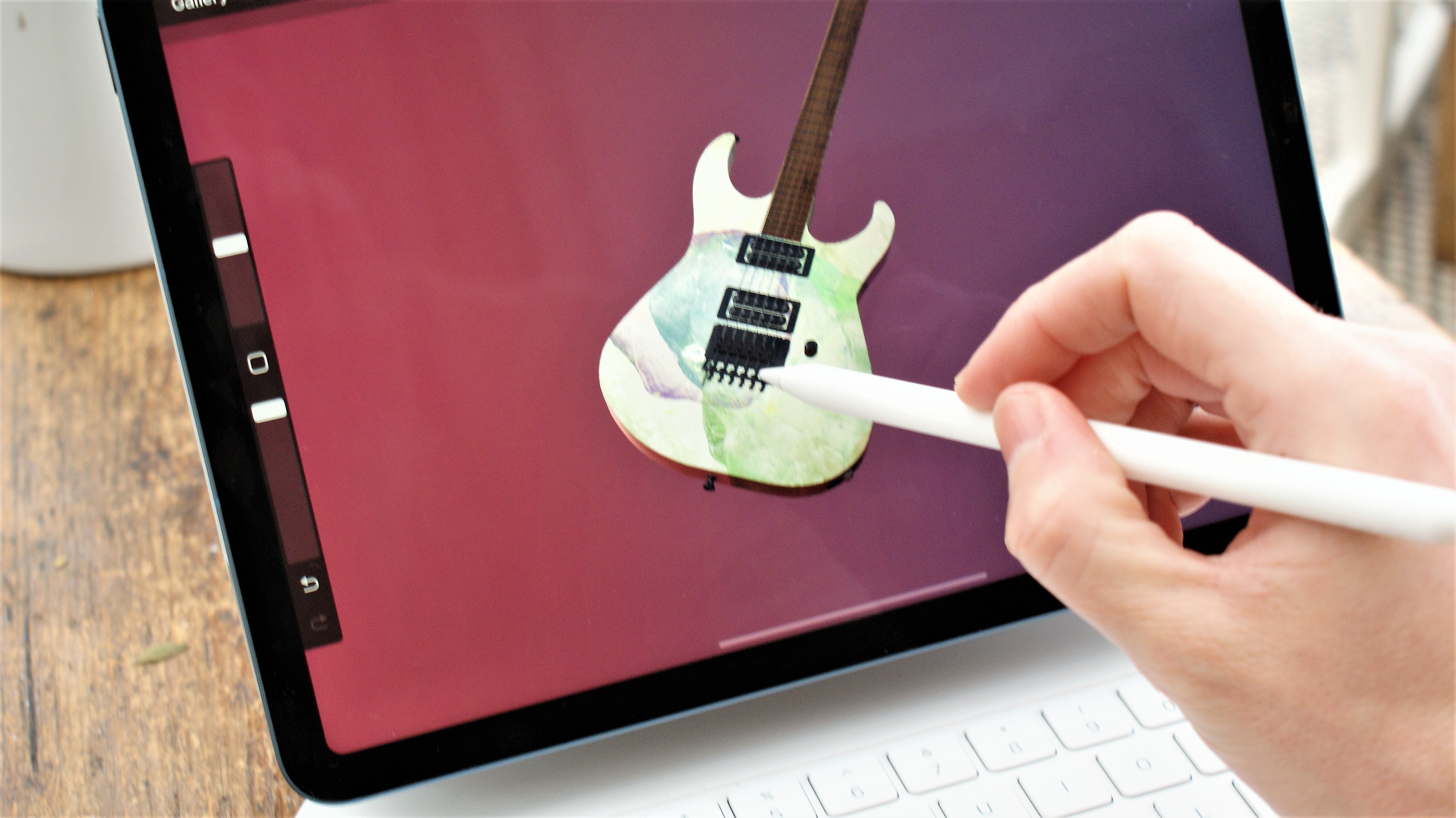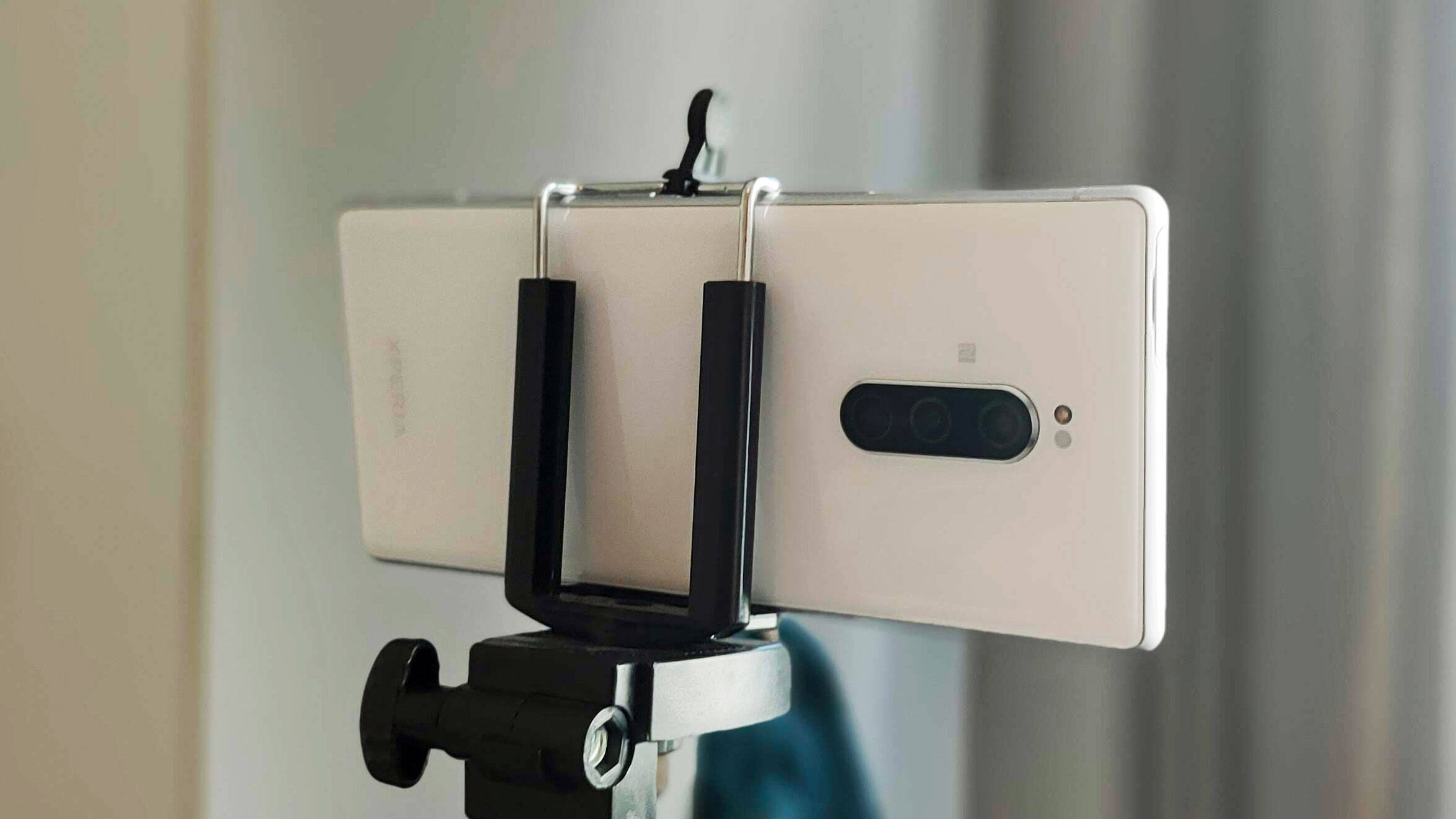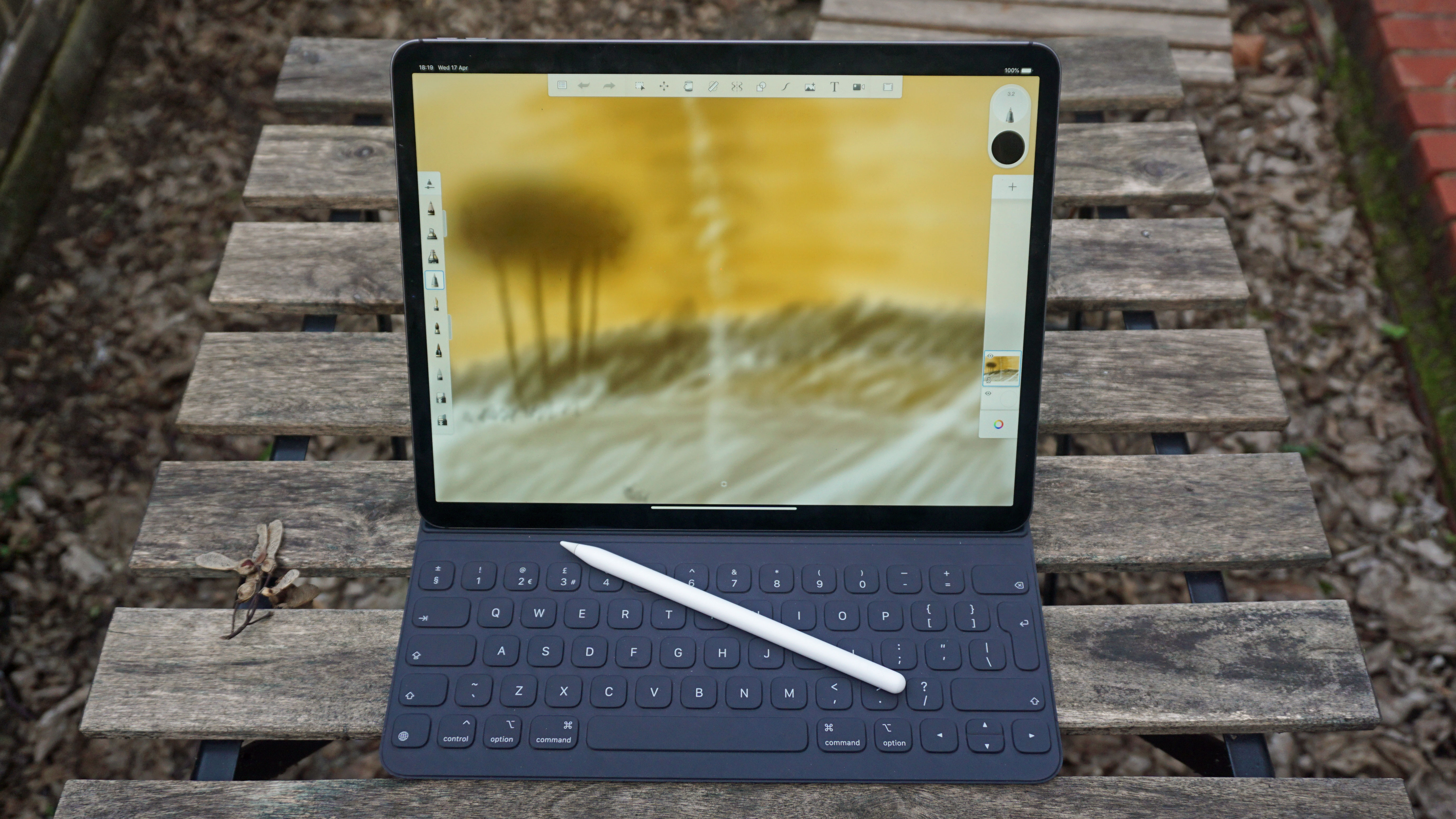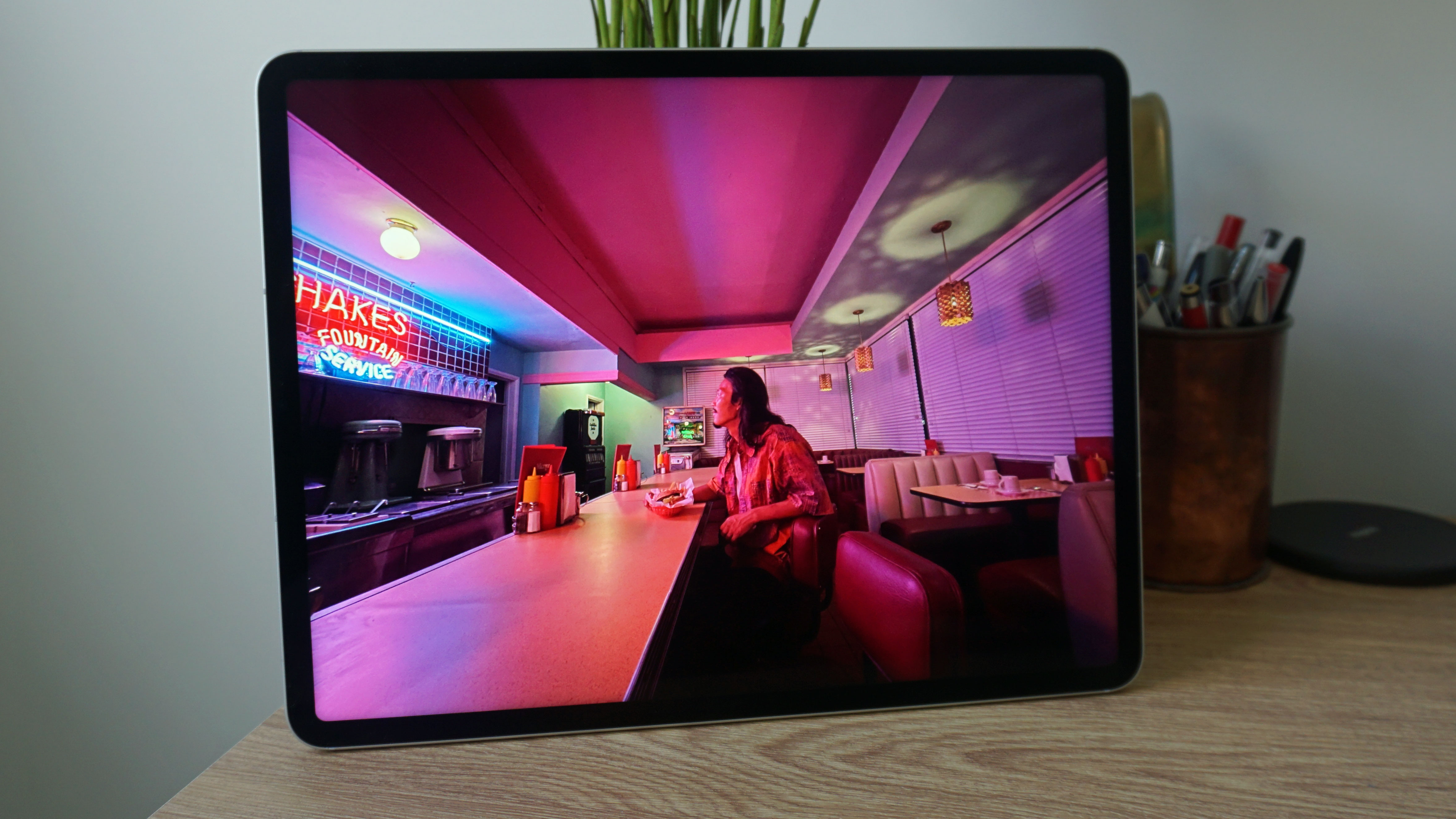When I’m not working at TechRadar, I’m making films. No, nothing you''ll have seen, just low-budget shorts and sketches. But it does mean I’ve got the right expertise to investigate products aimed at creative sorts - like the new iPad Air 5.
Now, lots of devices are marketed to creative types, but most of that is simply marketing guff, meant to sell aspiring creators on the perfect device - until they take it out of the box and realize it's just any other gadget. But that's marketing for you.
At the iPad Air launch, I could see that all over again. Because no matter how much Apple talks about the M1 chipset and its power for creativity apps, or the screen or Apple Pencil stylus or any of that, there’s one horrible limitation that stops it being useful for film-makers like me.
It’s storage

I don’t want to make you read thousands of words before you get to my issue, so I’ll say it up-front, then explain it after - my issue with the iPad Air (2022) is its storage options. It starts at 64GB, but you can also opt for a 256GB version if you prefer.
Yep, the iPad’s default storage option is lower than your average mid-range smartphone. Even 256GB is way too limited, as I’ll get to in a second. Those numbers simply aren’t high enough.
And to predict and respond to a possible retort: no, external hard drives or cloud storage solutions just won’t do. For one, you generally need to download files to an iPad to use them in most editing apps. And the main issue I’ve found with this method in general, is that it’s very hard to get hard drives to play nice with iPads. It’s like trying to put a leash on a bee and walk it - it’s fiddly and annoying, and I won’t do it.
For context, the newest iPad Pro can be bought with up to 2TB of storage - sure, it’s pretty expensive, but having about 7x the storage is incredibly useful. There are a few more tech differences between the Air and Pro, and my colleague Lance broke them down in this article, but for lots of creative professions, the issues begin and end with the storage.
Film footage is storage-hungry

Let’s do an experiment - pick up your smartphone, open the camera app, go to video mode, in the settings ramp up the resolution and frame rate as high as they can go, and record for a minute. Now, go into the gallery, find the file, and check out how much space was taken up.
I’m currently using the Xiaomi 12 - when I recorded in 4K at 60fps, the file was about half a gigabyte. When I shot in 8K at 24fps, I used almost an entire gigabyte in just a minute. So if you’re a mobile journalist or filmmaker shooting in 8K, 256GB of storage will last you about four hours of filming.
And if you decide to use a video camera with better color capture and other extras, or you’re shooting in LOG, you’ll take up even more space. That’s also the case if you’re shooting on multiple phones at once, which is very possible - part of the mobile filmmaker war of attrition is to just shoot as much footage as possible, rather than spend ages on a few perfect shots.
To summarize our findings from this experiment, video footage can take up a lot of storage space, and it’d be very, very easy to fill 256GB of storage space in a single day or less, if you were doing lots of shooting.
iPad Pros reign supreme

Now I know what you’re (probably) thinking: “why not just use a real computer for editing,” and yeah, for some tasks, that’s a very real option.
But there are situations when I can’t lug my giant home-built editing and gaming PC around with me - that’s the entire reason mobile journalism and film-making has become a thing. Being able to edit on the go means you can both shoot and form clips without having to return to a big suite to edit.
You’d be surprised by how many news reports or online videos are made this way - even some movies are too. Apps like LumaFusion bring desktop editing tools to tablets, and though you obviously won’t get the full edit experience from the comfort of a lap-resting device, it’s a very close approximation. In fact, the main reason I prefer editing on my PC is simply that the screen is bigger.
I’ve used my iPad Pro 12.9 for several years for mobile filmmaking, and I’ve found its 1TB storage space enough, as long as I delete unneeded files once I’ve picture-locked the project (I also only started shooting in 8K recently, so my older files take up less space).
Admittedly an Apple laptop might be even better for these purposes, but I’m not on TechRadar’s computing team so can’t get a test unit, and am not in the 1% so can’t afford to buy one. And anyway, this is an article about why the iPad Air is lacking, not about why other devices are great.
But there’s more

I’ve worked on projects where we’ve shot over 256GB just from the video and audio, and that alone suggests this space just isn’t enough for creatives. But the film process requires so many more files.
I use my iPad for scripts, storyboards, call sheets, shot lists, health and safety documents, permits, Covid guidelines, notes from the shoot, notes on the script, notes on the rushes (the raw footage taken each day), backups of all of the above.
Sometimes I also need mood boards, clips from other films to use as inspiration, music that I want to influence the mood, games so I can procrastinate instead of work - and of course I need space for documents not just from this shoot, but all my other projects too.
And hell, I'm not even a working professional in the field, this is just a hobby. I can't imagine what a large project with a longer shoot schedule and bigger team would look like.
Film takes loads of storage space, but film-making takes so much more. When I see 256GB as the storage limit on an iPad, I don’t see a device I can work on, I see something I can watch Netflix on. And if I’m paying loads of money for an Apple device, I want to be able to shoot movies, not just watch them. In that regard, the iPad Air falls short - all hail the iPad Pro.
from TechRadar - All the latest technology news https://ift.tt/UGx7IzT
via IFTTT

No comments:
Post a Comment